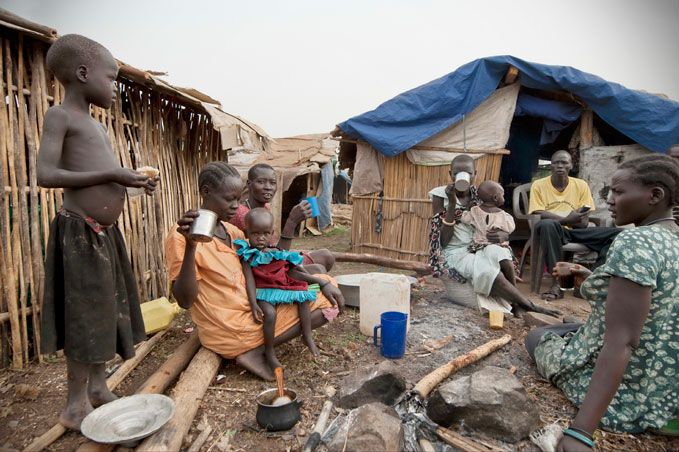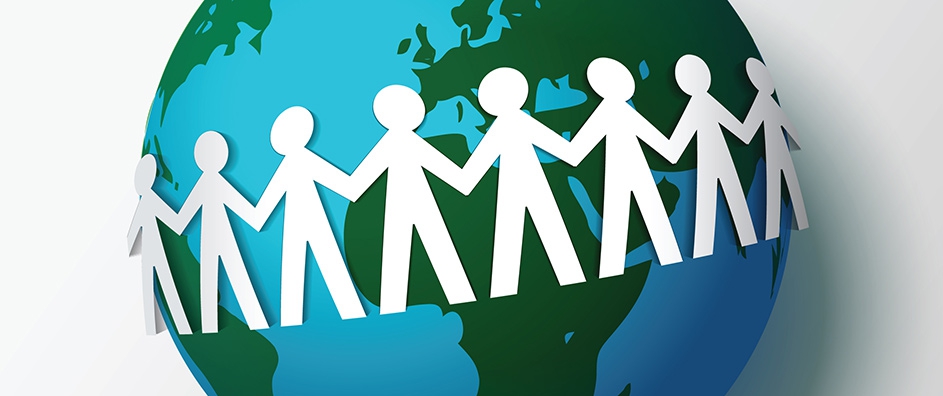The views expressed in our content reflect individual perspectives and do not represent the authoritative views of the Baha'i Faith.
O contending peoples and kindreds of the earth! Set your faces towards unity, and let the radiance of its light shine upon you. Gather ye together, and for the sake of God resolve to root out whatever is the source of contention amongst you. Then will the effulgence of the world’s great Luminary envelop the whole earth, and its inhabitants become the citizens of one city, and the occupants of one and the same throne. – Baha’u’llah, Gleanings from the Writings of Baha’u’llah, p. 217.
Where was your father born?
A hundred years ago, in most places, the answer to that question determined your citizenship. It might surprise you to learn that in most places, it still does.
In Latin and in law, that’s called jus sanguinis, the right of blood. Before women’s suffrage succeeded, your mother’s nationality didn’t matter—only the father’s. In other words, you inherited your father’s citizenship, and automatically became a citizen of his country, no matter where you were born.
Although the majority of the world’s nations still grant citizenship based on jus sanguinis parental inheritance, not all do.
Today, most countries in North and South America confer citizenship based on the old legal concept of jus soli, the right of the soil—which depends, as it suggests, on your place of birth. Approximately 35 of the world’s 194 countries, including the United States and Canada, grant jus soli citizenship. Almost all the rest—Africa, Asia, Europe and the island nations—use some variation of jus sanguinis citizenship rules, or a combination of the two. Citizenship experts call these traditional rules blood-and-soil laws.
But all of these ancient legal terms and arcane citizenship statutes got thrown for a loop in 1948, when the United Nations adopted and the vast majority of the world’s countries ratified the Universal Declaration of Human Rights. In Article 15, the UDHR says:
Everyone has the right to a nationality.
No one shall be arbitrarily deprived of his nationality nor denied the right to change his nationality.
Those international laws, initially formulated to figure out fair ways to handle the world’s millions of World War II refugees, have now become an increasing subject of debate, political rancor and nativist anger in many, many places. That last phrase, about the right to change your nationality, still causes great controversy and great resistance by the majority of the Earth’s nations.
That’s because the old cliché—that the world has shrunk into a neighborhood—has certainly not proven true in its treatment of migration and citizenship. Most countries definitely don’t treat most refugees or migrants as their neighbors. In fact, the increased migration of large populations escaping war, persecution, genocide, hunger, oppression and poverty, especially from the global South to the global North, has generated an enormous backlash and tested the commitments to freedom of many countries. Entire political movements have anti-immigrant policies as their main rationale. Violent racist and skinhead groups target, beat and kill foreigners. With the U.N. estimating that almost 20 million homeless refugees existed at the end of 2014, the entire planet sometimes seems aflame with anti-immigrant sentiments, from developed nations in Europe and the Americas to sub-Saharan Africa.

Displaced persons camp in South Sudan
Just today, as I’m writing this, a hundred and fifty refugees and migrants drowned in two leaky boats in the Mediterranean, and 71 people fleeing from the war in Syria died in a locked truck near Vienna, Austria. Twenty four hundred refugees have drowned in the Mediterranean so far this year. Mostly families attempting to escape war and turmoil in the Balkans, the Middle East and northern Africa, these refugees who died represent only a fraction of the hundreds of thousands fleeing death, misery and destruction. Many, of course, are children: http://blogs.unicef.org/2015/08/27/children-on-the-move-through-europe-dream-of-a-normal-life/
So with the advent of modern communications and relatively accessible transportation for many people, much of the world’s conflict now causes the movement of large numbers of people to new places. Immigration has become a bloody battleground, with hundreds of thousands and even millions willing to risk their lives and trust human traffickers to escape the harsh realities they face in their home countries and seek a better life elsewhere. Today, this pressing global immigration crisis has begun to ask humanity two very essential questions: are we neighbors, and are we all citizens of the world?
Many of the world’s most advanced thinkers and cultures have begun to seriously debate those questions, and ask whether we need to re-define the whole notion of what it means to be a citizen:
Talk of citizenship today is often thin and tinny. The word has a faintly old-fashioned feel to it when used in everyday conversation. When evoked in national politics, it’s usually accompanied by the shrill whine of a descending culture-war mortar. – Eric Liu
Even as human rights norms have steadily evolved over the past half-century, the field of citizenship has remained one of the last bastions of untrammeled state sovereignty. As a result, citizenship creates a giant loophole in the international human rights framework. – James Goldston
Whatever system of governance is eventually adopted, it is important that it carries the people with it. We need to convey the message that safeguarding our common property, humankind, will require developing in each of us a new loyalty: a loyalty to mankind. It calls for the nurturing of a feeling of belonging to the human race. We have to become world citizens. – Joseph Rotblat
That principle of loyalty to all humanity—the central message of the Baha’i Faith—can help us understand, frame and deal with the problems of global migrant and refugee populations:
Equality and Brotherhood must be established among all members of mankind. This is according to Justice. The general rights of mankind must be guarded and preserved.
All men must be treated equally. This is inherent in the very nature of humanity. – Abdu’l-Baha, Abdu’l-Baha in London, p. 29.
















Comments
Sign in or create an account
Continue with Googleor